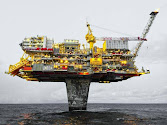Deepwater drilling: risks and solutions
Deepwater drilling is the process of extracting oil and gas from the depths of the ocean floor. This is a controversial practice as it poses a number of risks to the marine environment.
Risks to marine lifeOne of the most serious risks of deepwater drilling is oil spills. Oil spills can destroy marine life because they can cover the surface of the water, making it difficult for animals to breathe. Oil can also sink to the bottom of the ocean, where it can contaminate sediment and harm benthic life.
In addition to oil spills, deepwater drilling can also produce other pollutants, such as drilling mud and cuttings. These pollutants can also harm marine life and make the water unsafe for human consumption.
Risks to marine ecosystems
Deep-sea drilling can also harm marine ecosystems. For example, noise from drilling can disrupt the migration patterns of whales and dolphins. Drilling can also damage coral reefs, which are important habitats for many marine species.
Risks for companies
Deepwater drilling is also a risky business for companies. The cost of drilling in deep water is high, and there is always the risk of an accident, such as an oil spill. An accident can damage a company's reputation and lead to expensive lawsuits.
What can be done?
There are a number of things that can be done to reduce the risk of deepwater drilling. They include:
Using safer drilling methods
There are a number of safer drilling methods that can be used to reduce the risk of oil spills and other accidents. These methods include the use of blowout traps, which are designed to seal the well in the event of a blowout.
Carrying out environmental impact assessment
Before drilling begins, companies must conduct an environmental impact assessment to identify potential risks to the marine environment. These assessments should be used to develop risk mitigation plans.
Execution of normative acts
Governments must enforce regulations to ensure safe deepwater drilling. These regulations should include requirements for using safer drilling methods and conducting an environmental impact assessment.
Conclusion
Deep-sea drilling is a risky practice that can pose a number of risks to the marine environment, marine ecosystems and companies. There are a number of things that can be done to reduce these risks, including using safer drilling methods, conducting environmental impact assessments and complying with regulations.




Comments
Post a Comment